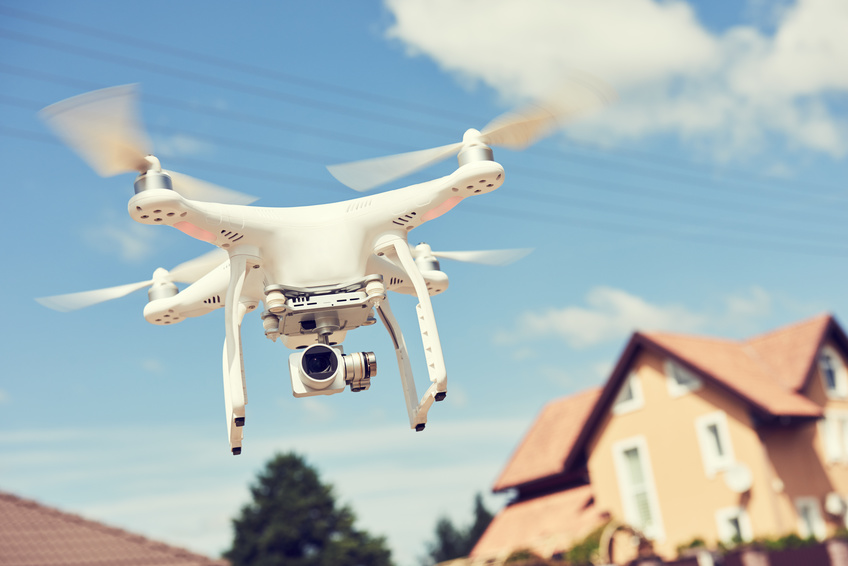 The roof contracting industry generates an estimated $46 billion of revenue in the U.S. annually, and one Pleasant Grove, Utah-based company has used drone technology to gain 12 patents within the past 18 months alone.
The roof contracting industry generates an estimated $46 billion of revenue in the U.S. annually, and one Pleasant Grove, Utah-based company has used drone technology to gain 12 patents within the past 18 months alone.
“When we founded Loveland Innovations, I saw a tremendous potential for drones and artificial intelligence to revolutionize the roof and property inspection world,” Jim Loveland, founder and CEO of Loveland Innovations, told the Daily Herald. “As such, we set out to create a new, intuitive solution to the age-old problem of accurately inspecting properties and buildings. The quick recognition by the USPTO (U.S. Patent and Trademark Office) in rapidly issuing a dozen of our patents is a huge endorsement of the big ideas that let us change the industry.”
Approximately 43.3 million foreign-born people live in the United States, and Loveland Innovations has employed people of all backgrounds to help countless contractors bid on roofing jobs and complete other technical tasks within the industry.
Loveland Innovations has a goal of “harnesses the power of drones” in order to help a number of different types of contractors, inspectors, and insurers to improve safety and accuracy. Additionally, since homes with pro photos in their listings sell 32% faster than those that don’t, drone technology is helping the real estate sector, as well.
“You’ve got people leaning ladders against roofs, using ropes and harness systems to manually inspect each roof. It’s a cumbersome, dangerous process. It’s absolutely archaic,” Loveland said.
Loveland’s drones can make roofing jobs in particular exponentially safer. Plus, they’re versatile for various types of homes’ roofing, including modular homes, which can sometimes be built in the factory in as little as one to two weeks.
Loveland also noted that while traditional roofing assessment takes an average of two hours, his company’s technology can cut that time back to just 12 minutes.
“We know the insurance industry. We know what can change the industry in a very meaningful way,” Loveland said.
According to Colin Guinn of 3-D Robotics, drones will help engineers and architects tackle various construction tasks more accurately, and Loveland’s drone system was recently implemented after hurricanes hit certain locales around the United States. The drone system was able to easily show the damage that several roofs had sustained, providing the details needed to create an accurate estimate.
In addition to roofing estimates, contractors within the solar technology industry can use the drone systems to document existing damage before the installation of solar panels.
“This level of efficiency completely changes their business model,” said Ethan Kirk, director of marketing for Loveland Innovations. “The application of drones in insurance, roofing, and solar is massive and the potential is starting to be realized.”
At this growing pace, there’s no limit to what Loveland Innovations — as well as any number of drone construction firms around the nation — can achieve when it comes to improving safety and overall efficiency. From home remodeling projects to land surveying, drones are changing the game.
“Our success is largely thanks to our incredibly talented team of developers,” said co-founder and chief technology officer Leif Larson. Our patents are a testament to their inventive spirits, passion, and tenacity. We’ve come a long way, and yet we still have so many more great things on the horizon.”






